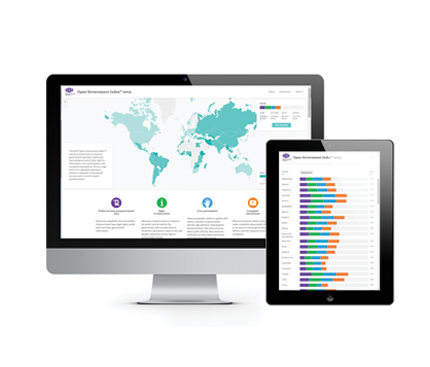
 At one time, rigorous measurement and data collection were largely unfamiliar concepts to the governance, development, and rule of law communities. It’s increasingly accepted, however, that efforts to track and analyze the status and reform of government institutions are far from supplemental—they are absolutely essential to understanding and improving these systems. The bigger issue facing advocates seeking responsible, responsive, and functional governments is, rather, what type of measurement will best isolate problems and inspire progress.
At one time, rigorous measurement and data collection were largely unfamiliar concepts to the governance, development, and rule of law communities. It’s increasingly accepted, however, that efforts to track and analyze the status and reform of government institutions are far from supplemental—they are absolutely essential to understanding and improving these systems. The bigger issue facing advocates seeking responsible, responsive, and functional governments is, rather, what type of measurement will best isolate problems and inspire progress.
As the World Justice Project has produced our Rule of Law Index over the past six years, expanding and refining our measurement of Rule of Law in over 100 countries, we have also identified specific concepts and areas that lack the type of empirical, on-the-ground evidence needed to best inform practitioners. While the “open government” movement has blossomed over this time, measuring open government around the world has become a pressing, and heretofore incomplete, task.
Since governments and international actors are investing significant resources and energy to open government—a feature long central to the rule of law—there have been a number of important efforts to track openness. Legal and administrative tracking mechanisms, like the Open Government Partnership’s country self-assessments and its Independent Reporting Mechanism, are critical for in-country progress on discrete projects and high-level commitments. Existing independent reviews, such as the Global Right to Information Rating, provide useful comparative assessments of open government concepts.
One crucial question remains unaddressed: Are these institutions and reforms actually serving the public? We need to know if citizens are aware of right to information laws; whether they can take advantage of complaint mechanisms; and whether participation in government is effectually offered. While laws on the books have been measured and compared, their effect on the ground has not.
That’s why our new report we are launching today, the World Justice Project (WJP) Open Government Index 2015, uses representative population polling and surveys of in-country experts to shed light, for the first time, open government practices in over 100 countries. The Index provides global insights on open government, aggregate country rankings, country profiles, and scores on four dimensions of government openness: publicized laws and government data, right to information, civic participation, and complaint mechanisms.
For this report, more than 100,000 people were interviewed. By talking to people who use and study these systems, we can identify strengths and weaknesses of openness efforts all the way down to demographic usage of specific policies. For example, we can now track who is requesting information, who is attending community meetings, and how satisfied groups are with complaint resolution, adding a new dimension to our understanding of these processes.
Open government, we believe, is a fundamental component of the rule of law: open governments engage citizens in the project of governing as checks on state power and agents for positive change. These benefits, however, only arise if open government institutions are actually accessible and utilized by the public. As a product of two years of development, consultation, and vetting with stakeholders, this report is intended as an empirically grounded diagnostic tool to help identify strengths and weaknesses, and ultimately encourage openness through policy, oversight, and collaboration.
With the report now published, the website ready for interaction, and forthcoming blog posts across the web highlighting key findings, we hope to contribute new insights to, and learn from, the important conversations already taking place over open government.






